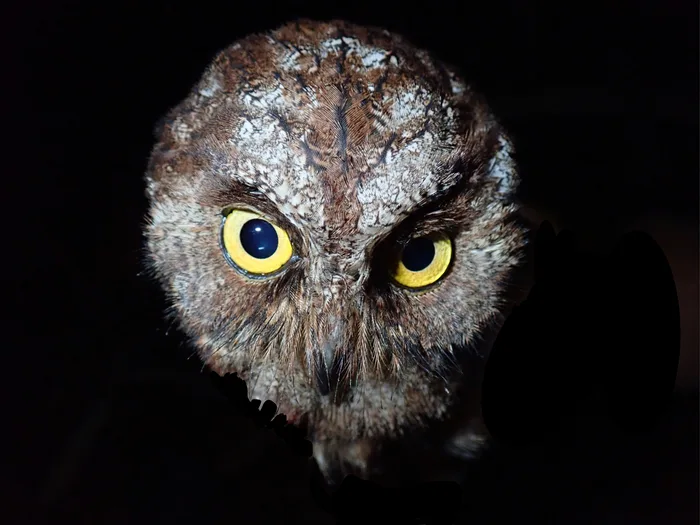
A new owl species was discovered, and it may already be critically endangered
The owl's small habitat could become a construction site in the near future.
There's a new owl on the family tree, found living in the rainforests of São Tomé and Príncipe in Central Africa.
This nocturnal creature makes short, rapid peeps, almost like an insect call - and it likes to perform duets with its friends.
Only found in a small area of 15 square kilometres, this tiny owl’s habitat is already at risk. A hydroelectric dam is scheduled to start construction there in the future.
Researchers say there is between 1,000 and 1,500 of them within the area’s old-growth forests, and since all of them are concentrated in one place, they have proposed the species is classified as 'critically endangered.'
This could help fast-track conservation efforts.
Scientists confirmed the presence of the owl in 2016, but rumors of its existence date back to 1998. In their new paper, they have called it the Principe Scops-Owl, or Otus Bikegila.
"Otus" is a name for small owls with a common history in Eurasia and Africa, and “Bikegila” is the nickname of the local park ranger who worked with researchers to find and document the owl.
“The discovery of the Principe Scops-Owl was only possible thanks to the local knowledge shared by Bikegila and by his unflinching efforts to solve this long-time mystery,” the researchers say in a statement.
“As such, the name is also meant as an acknowledgment to all locally-based field assistants who are crucial in advancing the knowledge on the biodiversity of the world.”
Otus Bikegila is now the eighth known bird species endemic to Príncipe - an unusually high number of bird endemism for an island of only 139 km2, the authors say.
The authors say the findings highlight the importance of protecting forest ecosystems.
“The discovery of a new bird species is always an occasion to celebrate and an opportunity to reach out to the general public on the subject of biodiversity,” says study author Martim Melo. “In this age of human-driven extinction, a major global effort should be undertaken to document what may soon not be anymore,” he and his team state in their paper.
Thumbnail image courtesy: Martim Melo.
